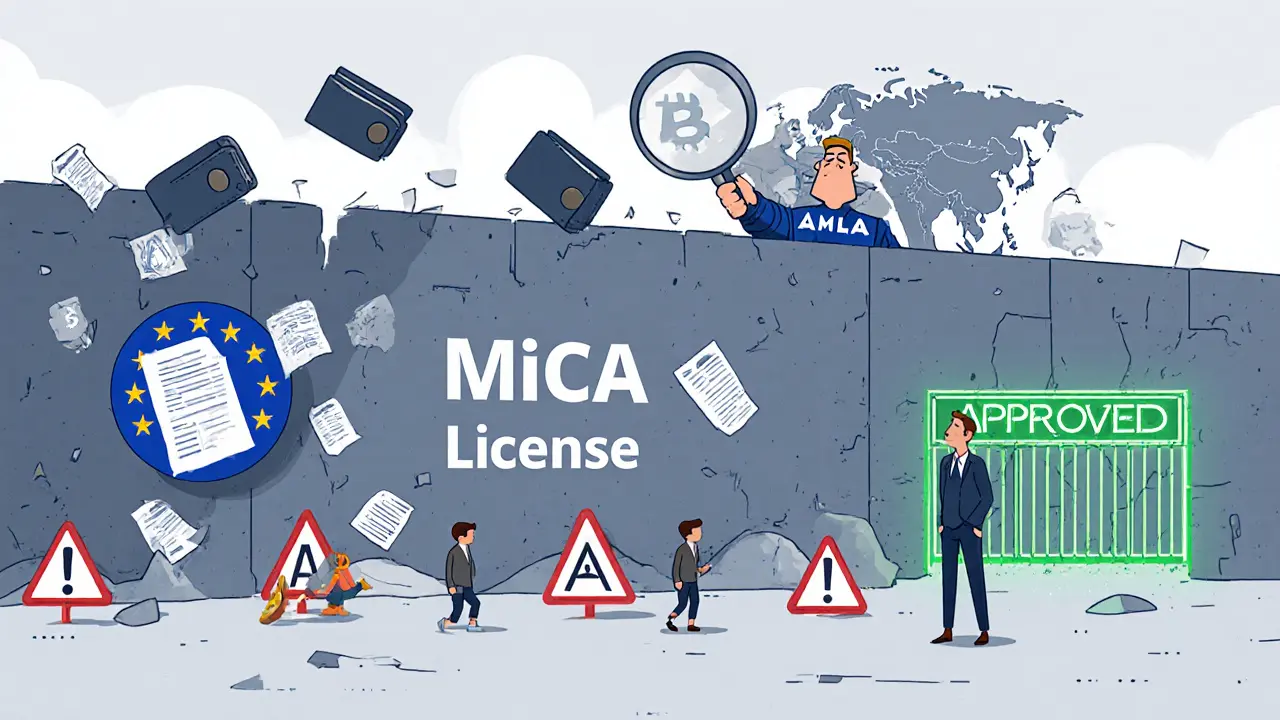Crypto AML Rules: What You Need to Know About Anti-Money Laundering in Crypto
When you hear crypto AML rules, anti-money laundering regulations applied to cryptocurrency transactions to prevent illegal activity. Also known as crypto compliance, these rules are no longer optional—they’re enforced by banks, exchanges, and governments worldwide. If you’ve ever been blocked from withdrawing crypto, asked for ID to trade, or heard about a platform freezing accounts, you’ve felt the impact of these rules.
Crypto KYC, the process of verifying a user’s identity before allowing crypto transactions is the first gatekeeper. Countries like South Korea and the Philippines now require real-name bank accounts just to buy Bitcoin. In Vietnam, businesses accepting crypto payments face fines up to 200 million VND—not because they’re evil, but because they skipped AML checks. The crypto regulation, government frameworks that define how crypto must be monitored, reported, and restricted isn’t about stopping innovation. It’s about stopping criminals from using crypto to hide stolen money, ransomware payouts, or drug sales.
These rules don’t just affect exchanges. They hit everyday users too. If you’re holding crypto on an unlicensed platform like those frozen in the Philippines, your $150 million in assets can vanish overnight. Even if you’re not doing anything wrong, you’re still caught in the net. That’s because AML rules treat all crypto activity the same—no exceptions. You can’t say, "But I just bought ETH to pay for a meal." The system doesn’t care. It sees a transaction and asks: Did you verify your identity? Did you report it? Did you follow the chain?
Some projects try to bypass these rules by claiming to be "decentralized." But dYdX still blocks U.S. users. Voltage Finance doesn’t let you trade from restricted countries. Even if the code runs on a blockchain, the people behind it still need licenses. That’s why so many crypto projects die quietly—they can’t afford the legal overhead.
And it’s not just about money. Crypto AML rules are tied to tax reporting, asset recovery, and even national security. When the SEC freezes funds, it’s not random. It’s based on audit trails, transaction patterns, and suspicious activity reports. If you’re using a platform without KYC, you’re not just taking a risk—you’re putting your entire portfolio in legal jeopardy.
Below, you’ll find real cases showing how these rules play out—from fines in Vietnam to frozen assets in the Philippines, from banned exchanges in China to the quiet deaths of platforms that refused to comply. These aren’t hypotheticals. These are people who lost money, got sued, or had their accounts shut down because they didn’t understand the rules. You don’t need to be a lawyer to navigate this. But you do need to know where the lines are drawn.
